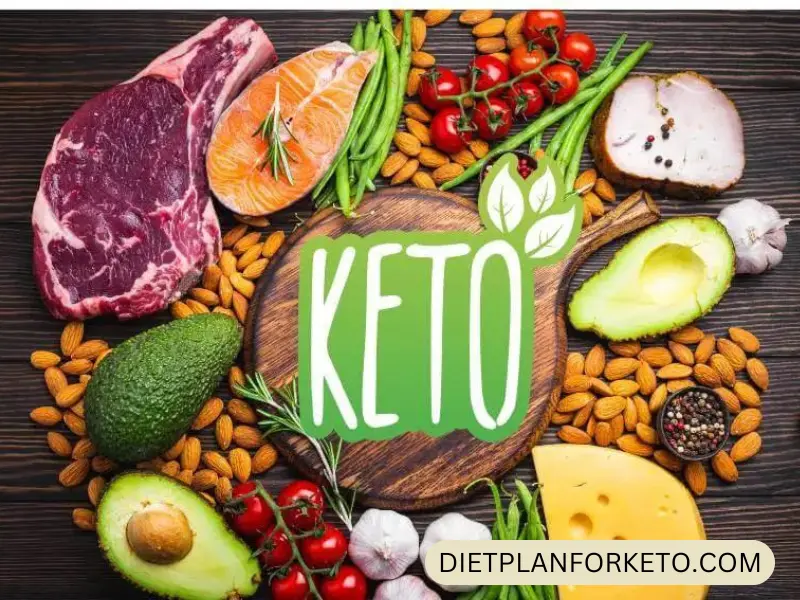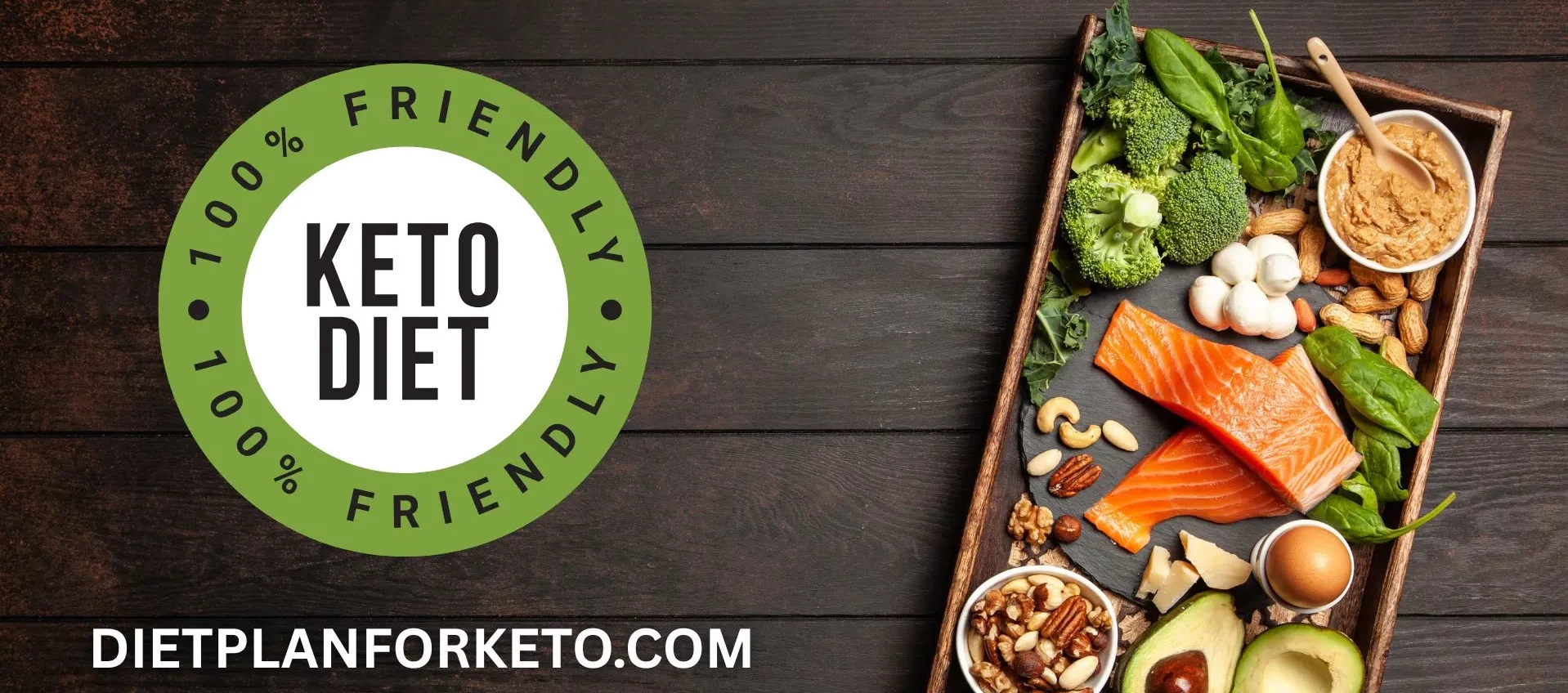The ketogenic diet, or keto diet, has surged in popularity due to its effectiveness in promoting weight loss, boosting energy levels, and improving overall health.
It works by reducing carbohydrate intake and shifting the body into a state of ketosis, where it burns fat for fuel instead of glucose.
While the diet itself can provide numerous benefits, the right supplements can enhance these results, prevent deficiencies, and support long-term success.
In this comprehensive guide, we’ll walk you through how to choose the right keto supplements for your health goals.
We’ll cover essential supplements, their benefits, what to look for when shopping, and tips for safe and effective supplementation on a keto diet.
1. Understanding the Basics of Keto and Supplementation
Before diving into specific supplements, it’s essential to understand why supplements are often needed on a ketogenic diet. The keto diet involves a significant reduction in carbohydrates and an increase in fats, leading to a drastic shift in how the body operates. This shift can lead to nutrient deficiencies, especially in the early stages, as the body adapts to this new way of eating.
Here are a few reasons why supplementation is key:
- Electrolyte Imbalance: Carbs help retain water and sodium. On keto, reduced carbs mean a rapid loss of water and electrolytes, leading to symptoms like fatigue, headaches, and muscle cramps.
- Reduced Nutrient Variety: Cutting out carbs limits access to certain micronutrients commonly found in fruits, whole grains, and legumes.
- Boosting Ketosis: Some supplements can help accelerate ketosis or enhance fat metabolism, making it easier to stick to the diet and reach your goals faster.
Key takeaway:
Supplements are not a replacement for healthy eating but rather support optimal nutrition and function while following a keto diet. The goal is to fill in the nutritional gaps and enhance the benefits of ketosis.
2. The Essential Keto Supplements: What You Really Need
There are a few supplements that are nearly universal for keto dieters. These help address nutrient deficiencies and balance electrolytes, which are critical for feeling good and performing well on the diet.
A. Electrolytes (Sodium, Potassium, Magnesium)
On a keto diet, the body excretes more water and electrolytes due to lower insulin levels. Replenishing electrolytes is crucial to avoid the dreaded “keto flu,” which includes symptoms like fatigue, nausea, and headaches.
- Sodium: Add more salt to your diet, or take sodium supplements to help maintain balance. Good sources include pink Himalayan salt or electrolyte powders with sodium.
- Potassium: This mineral supports muscle function and energy. Potassium supplements, or foods like avocados and leafy greens, can help maintain adequate levels.
- Magnesium: Magnesium helps prevent cramps, supports sleep, and reduces fatigue. Choose magnesium glycinate or citrate supplements for better absorption.
B. MCT Oil (Medium-Chain Triglycerides)
MCT oil is one of the most popular supplements on the keto diet. Derived from coconut or palm oil, MCTs are quickly converted into ketones by the liver, providing a fast energy source. Benefits include:
- Increased ketone production: MCTs help boost ketosis and make it easier to maintain.
- Energy: MCT oil is an instant fuel source for both the brain and body.
- Appetite control: Many people find that MCT oil helps control hunger.
C. Omega-3 Fatty Acids
Most people do not consume enough omega-3s, which are essential fats that reduce inflammation and support heart and brain health. On keto, omega-3s can also help balance the higher intake of omega-6 fatty acids that come from certain fats like vegetable oils.
- Choose fish oil supplements or krill oil, which contain EPA and DHA, the most effective forms of omega-3s.
D. Digestive Enzymes
Since the keto diet is higher in fat, some people may struggle with digesting fat efficiently, leading to bloating or stomach discomfort. Digestive enzyme supplements can help break down fats, proteins, and carbs, aiding in digestion and nutrient absorption.
- Look for digestive enzymes that contain lipase, protease, and amylase to help with fat digestion.
E. Exogenous Ketones
Exogenous ketones are a supplement form of ketones (usually beta-hydroxybutyrate, or BHB) that help increase blood ketone levels. These supplements can provide an energy boost, improve mental clarity, and help the body transition into ketosis more smoothly, especially after consuming extra carbs.
- Best for: People transitioning into ketosis, needing a quick energy boost, or recovering from a carb-heavy meal.
3. Supplements for Specific Goals
While the essential supplements address general keto needs, certain supplements target specific goals, such as weight loss, enhanced mental clarity, and athletic performance. Here’s how to tailor your supplementation to your personal goals:
A. Weight Loss
- Green Tea Extract: Green tea extract contains antioxidants called catechins, which may help boost metabolism and increase fat burning.
- Carnitine: This amino acid helps the body transport fat to the mitochondria, where it’s burned for energy, supporting fat loss.
- CLA (Conjugated Linoleic Acid): CLA is a naturally occurring fatty acid that may help reduce body fat and increase lean muscle mass.
B. Mental Clarity and Focus
- Caffeine: Keto dieters often combine caffeine with MCT oil to enhance mental clarity and focus. Caffeine boosts brain function and energy levels.
- Lion’s Mane Mushroom: This nootropic helps boost cognitive function and may help improve memory and mental clarity.
- Phosphatidylserine: A compound found in brain cells that supports memory and learning, phosphatidylserine may help reduce brain fog and improve concentration.
C. Athletic Performance
- Creatine: Creatine is a well-known supplement for improving strength and endurance during workouts. On keto, it helps maintain muscle mass while burning fat.
- Beta-Alanine: This amino acid helps reduce muscle fatigue and improve endurance, making it a popular supplement for athletes on keto.
- BCAAs (Branched-Chain Amino Acids): BCAAs help prevent muscle breakdown and aid in muscle recovery, which is particularly helpful if you’re following a keto diet and working out regularly.

4. How to Choose High-Quality Keto Supplements
Not all supplements are created equal, so it’s crucial to choose high-quality products that deliver what they promise.
Here are a few tips to ensure you’re selecting the right supplements:
A. Check for Third-Party Testing
Supplements that have undergone third-party testing ensure that they contain what’s listed on the label and are free from contaminants. Look for certifications like NSF, Informed Choice, or USP.
B. Opt for Clean Ingredients
Read the ingredient list carefully. Avoid supplements with artificial sweeteners, fillers, or additives that could cause inflammation or interfere with ketosis.
C. Choose Reputable Brands
Stick to brands that are well-known in the keto community or have a history of producing high-quality supplements. Look for online reviews and recommendations from trusted sources.
D. Look for Keto-Friendly Formulations
Some supplements are specifically formulated for the keto diet, containing ingredients that complement a low-carb, high-fat lifestyle. For instance, keto electrolyte supplements may have no added sugar, while keto MCT oil powders often contain no carbs.
5. Common Mistakes to Avoid When Choosing Keto Supplements
While supplements can be incredibly beneficial, there are a few common mistakes people make that could hinder their progress:
A. Over-Reliance on Supplements
Supplements are meant to enhance your diet, not replace whole foods. Always prioritize getting your nutrients from real food and use supplements as a backup.
B. Not Paying Attention to Labels
Some supplements may contain hidden sugars, carbs, or artificial ingredients that could kick you out of ketosis. Always read the label carefully to ensure the product is keto-friendly.
C. Neglecting Electrolytes
One of the most common mistakes is neglecting electrolytes. Without proper electrolyte balance, you may feel sluggish, experience muscle cramps, or get the keto flu.
D. Taking Too Many Supplements
More isn’t always better. Stick to the essentials and avoid over-supplementing, as this could lead to nutrient imbalances or unnecessary expenses.
6. Tips for Safe and Effective Supplementation on Keto
To make sure you’re getting the most out of your supplements, follow these best practices:
- Consult a healthcare provider: Before starting any new supplement, especially if you have a medical condition or are on medication, consult a doctor or nutritionist.
- Start slow: Introduce one supplement at a time to see how your body reacts. This also allows you to identify any potential side effects.
- Stay hydrated: Drink plenty of water to help your body absorb electrolytes and other supplements properly.
- Monitor your progress: Keep track of how you feel with each supplement. Adjust dosages or switch products if necessary.
Conclusion
Choosing the right keto supplements can significantly enhance your results, whether you’re aiming for weight loss, better energy levels, or improved mental clarity.
Focus on the essentials like electrolytes, MCT oil, and omega-3s, and consider specific supplements based on your personal goals. Remember, supplements should complement a well-rounded keto diet and lifestyle.
By choosing high-quality products and avoiding common mistakes, you can enjoy all the benefits of ketosis while supporting your overall health and well-being.
